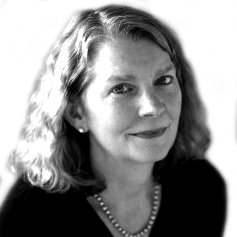Halfway through Claire Messud’s sprawling new novel, the 31-year-old François reflects on his grand aspirations: “He wanted to experience everything, from the rocky iguana-covered outcrops of the Galápagos to the sumptuous palaces of Jaipur, from a gelatinous platter of steamed sea cucumber in a restaurant in Kuala Lumpur or a tear-inducing curry in Macao to the Inca ruins of the Yucatán Peninsula, from the ancient churches carved in rock at Lalibela to the dusk falling over Mount Olympus to the sun rising behind the rusty monolith of Ayers Rock as it loomed out of the vast Australian desert—he wanted to see and smell and taste and hear and touch all of it.”
This Strange Eventful History, itself no less ambitious in sweep and scope, spans seven decades from 1940 to 2010, and chronicles in a stunning, meticulous prose three generations of the Cassar family as they whirl about the globe.
Whether uprooted by geopolitical forces or driven by opportunity to a particular location, the novel’s characters are as formed by their interpersonal relationships as they are by their connection to place. Algiers, Tlemcen, Beirut, Salonica, Toronto, Geneva, Amherst, Paris, Buenos Aires, Cambridge, Sydney, Greenwich, are themselves characters caught up in the family’s continual search, since being exiled from their native Algeria by the war of independence in 1962, for somewhere to call home.
In her novel, Messud insightfully explores the complex themes of conflicting claims of identity, the trauma of rootlessness, the power of family secrets to corrupt and corrode across generations, the brutal legacy of colonialism, how memory and denial shape us, how family history and world events coincide and collide. She does so by seamlessly moving among several characters’ points of view at various stages of their lives.
The title of the novel is a reference to Jacques’s “All the world’s a stage” speech from Shakespeare’s As You Like It, in which he describes the seven ages we traverse while enacting the stories of our lives, of “this strange eventful history.” Messud, often praised for her ability to capture the tiniest, most telling details of her characters’ lives and environments, here comprehensively portrays her own characters’ seven decades. Particularly poignant is the novel’s rendering of the seventh age as members of the Cassar family succumb to dementia and other ailments.
Algiers, Tlemcen, Beirut, Salonica, Toronto, Geneva, Amherst, Paris, Buenos Aires, Cambridge, Sydney, Greenwich, are themselves characters caught up in the family’s continual search for somewhere to call home.
As I read, now and again I would wonder: Is this a novel? Or is the ambitious, philosophical François actually a profile of Messud’s father? Are the pieds noirs Gaston and Lucienne, whose wrenching, idealized love story dominates the lives of their progeny, her paternal grandparents? Is the bookish, eccentric, secretive Denise her aunt? The disappointed, frustrated Canadian-born Barbara her mother? Is the patient, sweet Oliver her husband? Is she, herself, Chloe, the family’s natural-born storyteller? Does it matter?
Lately, or perhaps always, the lines between the genres of fiction, autofiction, roman à clef, narrative nonfiction, and memoir fluctuate and blur. Storytelling, Messud seems to be saying, doesn’t conform to anyone’s particular rules beyond the storyteller’s own. Questions surrounding the intersections of reality and fantasy, truth and deception, are the writer’s fodder.
Chloe (Messud?) explains her approach in the prologue: “I’m a writer; I tell stories. I want to tell the stories of their lives. It doesn’t really matter where I start. We’re always in the middle; wherever we stand, we see only partially. I know also that everything is connected, the constellations of our lives moving together in harmony and disharmony. The past swirls along with and inside the present, and all time exists at once, around us. The ebb and flow, the harmonies and dissonance—the music happens, whether or not we describe it. A story is not a line; it is a richer thing, one that circles and eddies, rises and falls, repeats upon itself.”
I was reminded of Natalia Ginzburg’s preface to her novel Family Lexicon. Ginzburg tells the reader that “the places, events, and people in this book are real,” but she insists her readers should read the book “as if it were a novel.”
She explains: “This is not in fact my story but rather, even with gaps and lacunae, the story of my family. I must add that during my childhood and adolescence I always thought about writing a book about the people with whom I lived and who surrounded me at the time. This is, in part, that book, but only in part because memory is ephemeral, and because books based on reality are often only faint glimpses and fragments of what we have seen and heard.”
Like Ginzburg, Messud challenges the idea of the author as “authority” and celebrates, even reclaims, the role of the writer as storyteller, a teller of truths, not of “the truth.”
François’s aspirations extended further than the exquisite monuments and delectable tastes: “He wanted to read everything, learn about everything—gnosticism, Byzantium, the Uighurs, the Chechens, Hatshepsut, Shackleton, Geronimo, Süleyman the Magnificent, the poetry of Li Bai, the writings of Ibn Khaldun, of Ahmed Baba in Timbuktu, the lot of it, an infinite feast, he longed to gorge himself on life itself, endlessly curious, ravenous even.”
Throughout her novel, Claire Messud allows us to share in François’s expansive intellectual inquisitiveness, proving in her lyrical, thought-provoking prose that she is very much her fictional father’s daughter.
Jenny McPhee is a writer and translator and the director of the Center for Applied Liberal Arts at N.Y.U.’s School of Professional Studies

